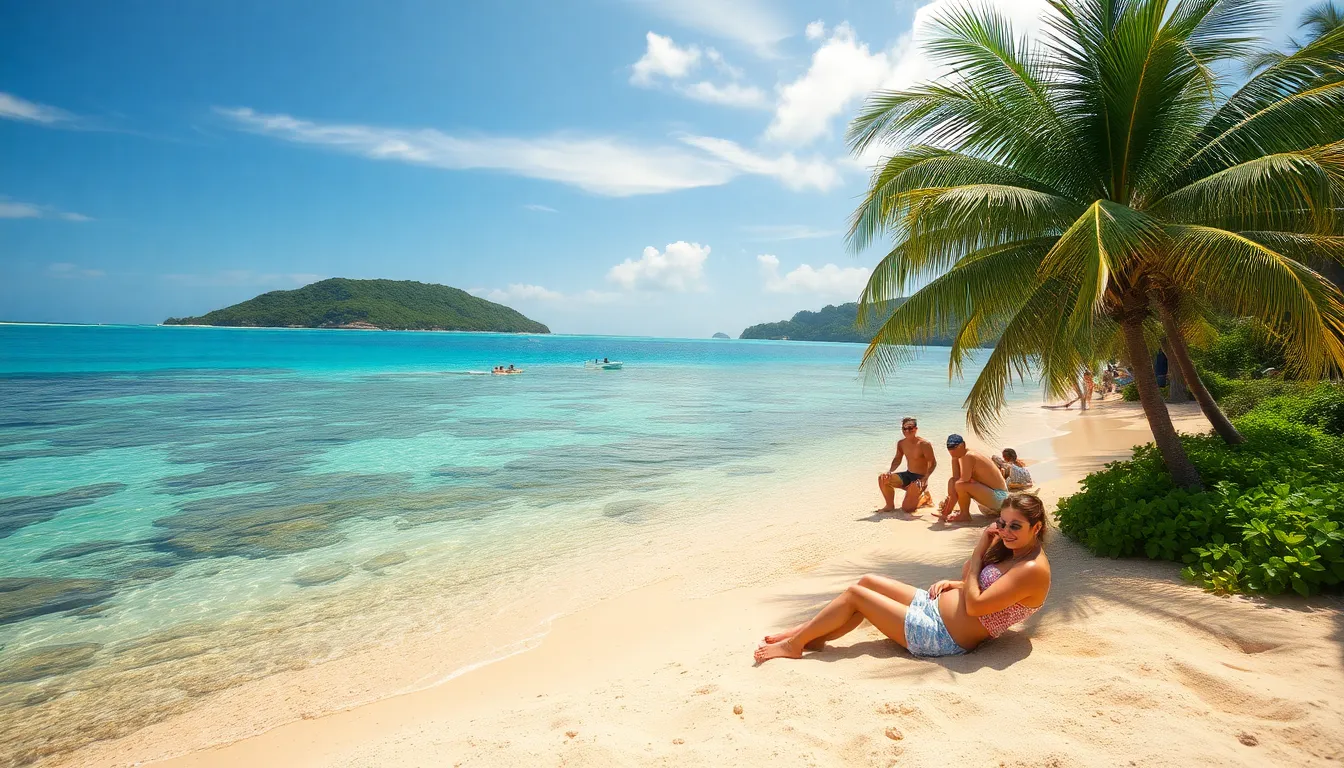When it comes to living the dream in Indonesia, wallet-watchers rejoice! This tropical paradise offers a cost of living that’s as refreshing as a coconut on a hot day. From bustling Jakarta to serene Bali, the affordability can make anyone feel like a king or queen without the need for a royal treasury.
Table of Contents
ToggleOverview of Indonesia Cost of Living
Indonesia offers a low cost of living, making it an attractive destination for expats and tourists. Monthly expenses typically range from $300 to $800, depending on lifestyle and location. Urban centers like Jakarta present higher costs, while Bali provides affordable options for housing and dining.
Housing costs vary significantly. In Jakarta, renting a one-bedroom apartment in the city center can reach $500, whereas the same apartment in a rural area might only be $200. Enjoying meals out is budget-friendly. Local street food can cost as little as $1, while a meal at a mid-range restaurant averages around $10.
Transportation remains economical. In many cities, public transport is efficient and affordable. Taxi fares start at about $0.50, making travel easy and cost-effective. Additionally, internet and mobile data expenses are manageable, with broadband services averaging $20 per month.
Healthcare offers affordable services, especially in comparison to Western countries. International clinics exist, with consultations typically costing around $30. Expats often opt for comprehensive health insurance plans that are budget-friendly yet provide excellent coverage.
Utilities, including electricity, water, and gas, average $100 a month for a small apartment. Educational options vary, with international schools charging between $5,000 and $15,000 annually.
Understanding these costs is essential for anyone considering relocating or traveling to Indonesia. The affordability contributes to enjoyable living conditions and leisure activities without financial stress.
Major Cities and Their Costs

Indonesia’s major cities exhibit diverse costs of living, which significantly affect daily life. Understanding these variations helps residents and travelers budget effectively.
Jakarta
Living in Jakarta often incurs higher expenses compared to other regions in Indonesia. A one-bedroom apartment in the city center can reach up to $500 monthly. Dining options range widely; local street food starts at just $1, while meals at mid-range restaurants average around $10. Public transportation remains cost-effective, with taxi fares beginning at approximately $0.50. For communication needs, internet and mobile data typically cost around $20 a month. Health services are available, with international clinic consultations averaging $30. Utilities for a small apartment generally total $100 monthly.
Bali
Bali offers a more relaxed cost structure, attracting many expats and tourists. One-bedroom apartments in central areas usually cost between $300 and $400 each month. Dining in Bali remains affordable as well, with street food costing under $2 and meals at mid-range restaurants averaging $8. Transportation expenses are manageable; scooter rentals are common at around $50 monthly. Internet and mobile services average about $20 a month. Healthcare options also fit a range of budgets; consultations at local clinics generally cost between $20 and $30. Overall, the island provides a balance of quality living and affordability.
Daily Expenses in Indonesia
Living in Indonesia offers a unique mix of affordability and comfort across various daily expenses.
Housing Costs
Housing costs vary significantly across Indonesia. In urban centers like Jakarta, a one-bedroom apartment in the city center can reach up to $500. However, rural areas present more budget-friendly options, with similar accommodations costing between $200 and $300 monthly. Bali, known for its serene lifestyle, features one-bedroom apartments in central locations priced from $300 to $400. Choices extend beyond traditional rentals, with numerous expats opting for shared accommodations to reduce costs. Understanding these differences helps potential residents gauge what fits their budget best.
Food Expenses
Food expenses in Indonesia cater to all budgets and preferences. Eating out is an economical option, with local street food available for as little as $1, making it easy for anyone to enjoy delicious meals daily. Mid-range restaurant meals typically average around $10, offering a wide range of dishes. Grocery shopping holds its advantages as well, with monthly expenses averaging $100 for a family of four, depending on dietary choices. Moreover, international cuisine exists in larger cities, often priced slightly higher. These versatile food options contribute to a vibrant culinary scene accessible to everyone.
Transportation in Indonesia
Transportation in Indonesia offers a mix of economical options for residents and travelers. The convenience and affordability appeal to many.
Public Transport
Public transport serves as a reliable choice in urban areas. Buses and minibuses, known as angkots, are widely available and operate on set routes. Fares usually start at around $0.30, making daily commutes highly affordable. Jakarta features a comprehensive bus rapid transit system called TransJakarta, which ensures swift travel across the city. In Bali, bemo services provide an inexpensive way to navigate local attractions. Train services, like those connecting Jakarta and surrounding regions, also offer budget-friendly fares. This network of public transport enables easy access to various locations while minimizing costs.
Private Transportation
Private transportation options include motorcycles and cars, which offer greater flexibility. Many locals choose to ride motorcycles due to their affordability and maneuverability in traffic, with rentals available for approximately $50 a month. Car rentals also cater to those preferring personal space, costing between $300 and $600 monthly, depending on the model. Ride-hailing services like Gojek and Grab gain popularity for their convenience and low fares, starting as low as $0.50 for short trips. Using such services enhances the ease of getting around, allowing individuals to explore Indonesia’s diverse regions without significant expense.
Additional Expenses
Understanding additional expenses in Indonesia provides a clearer financial picture. Factors such as healthcare and education significantly impact overall living costs.
Healthcare
Healthcare in Indonesia offers affordability without sacrificing quality. Consultations at international clinics usually average around $30 per visit. Public hospitals present even lower costs, though they may have longer wait times. Many residents purchase health insurance, typically ranging from $20 to $50 monthly. Routine treatments and medications remain budget-friendly, making healthcare accessible across income levels. Preventive care, like vaccinations and regular check-ups, is common and reasonably priced.
Education
Education expenses vary widely in Indonesia. Public schools charge minimal fees, often under $100 annually, while international schools range from $5,000 to $15,000 per year. Families seeking bilingual or English-language education frequently opt for private institutions. Local universities present affordable tuition options, averaging around $1,000 annually for degree programs. Extracurricular activities and additional tutoring can also add to overall costs. Overall, numerous educational options accommodate different budgets and preferences, making education accessible for both locals and expatriates.
Indonesia’s cost of living presents a unique opportunity for those seeking a blend of affordability and quality of life. With its diverse landscapes and vibrant cultures, residents can enjoy a comfortable lifestyle without breaking the bank. Whether in the bustling city of Jakarta or the serene beaches of Bali, there’s something for everyone.
The reasonable monthly expenses allow individuals and families to thrive while indulging in local cuisine and exploring the rich heritage. Affordable healthcare and educational options further enhance the appeal, making Indonesia a top choice for expatriates and travelers alike. Embracing life in this tropical paradise could be one of the best decisions anyone makes.






